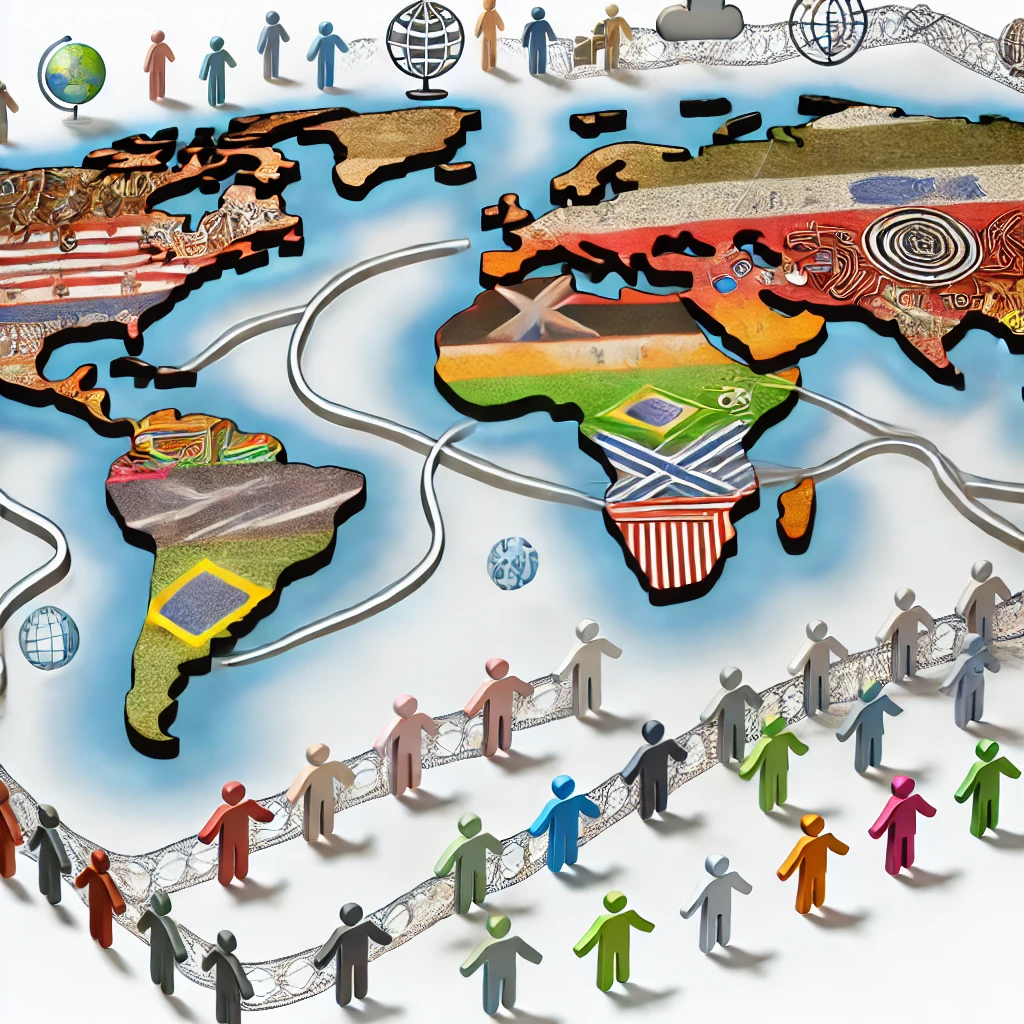
Welcome back, readers! Today, I want to challenge a fundamental concept we’ve all grown up with the idea of political borders. I argue that these man-made lines are outdated and destructive and stand in the way of a truly free and equitable global society.
The United States: An Unintentional Model?
Think about it: the United States is a union of states (or “countries,” if you will) that each agreed to cede specific powers to a central government. This government is, in theory, proportionally representative of its member states and their populations. This model, while imperfect, offers a glimpse into a potential future where borders become less relevant.
The Economic Case: Free Markets, Free People
Without borders:
- Free movement of capital: Investments could flow more easily to where they’re most needed, fueling innovation and growth worldwide.
- Free movement of labor: People could pursue opportunities wherever they exist, benefiting both individuals and the economies they contribute to.
This isn’t just theoretical. Economists widely agree that the free movement of capital and labor is a cornerstone of efficient markets. When these factors are allowed to flow freely, the result is often lower prices for consumers and higher wages for workers.
A More Open and Free System
Imagine a world where:
- Individuals have more choices about where they live, work, and build their lives.
- Communities can form across traditional boundaries, sharing knowledge and resources more effectively.
- Society as a whole benefits from a more diverse, interconnected, and innovative environment.
Addressing the Objections
I know what some of you might be thinking:
- Security: Yes, open borders present security challenges. But couldn’t a globalized society develop innovative solutions based on cooperation and shared intelligence?
- Cultural identity: I’m not advocating for a homogenous world. In fact, I believe the absence of borders could lead to a richer, more vibrant exchange of cultures.
- Practicality: This is a long-term vision, not an overnight change. But starting the conversation now is crucial if we want to move towards a better future.
I’m not suggesting we tear down all borders tomorrow. What I am proposing is that we start questioning their necessity. Let’s explore alternative models prioritizing individual freedom, economic prosperity, and global cooperation. After all, aren’t we all citizens of the same planet?
What are your thoughts? Do you agree that political borders are outdated? I’d love to hear your perspectives in the comments below!